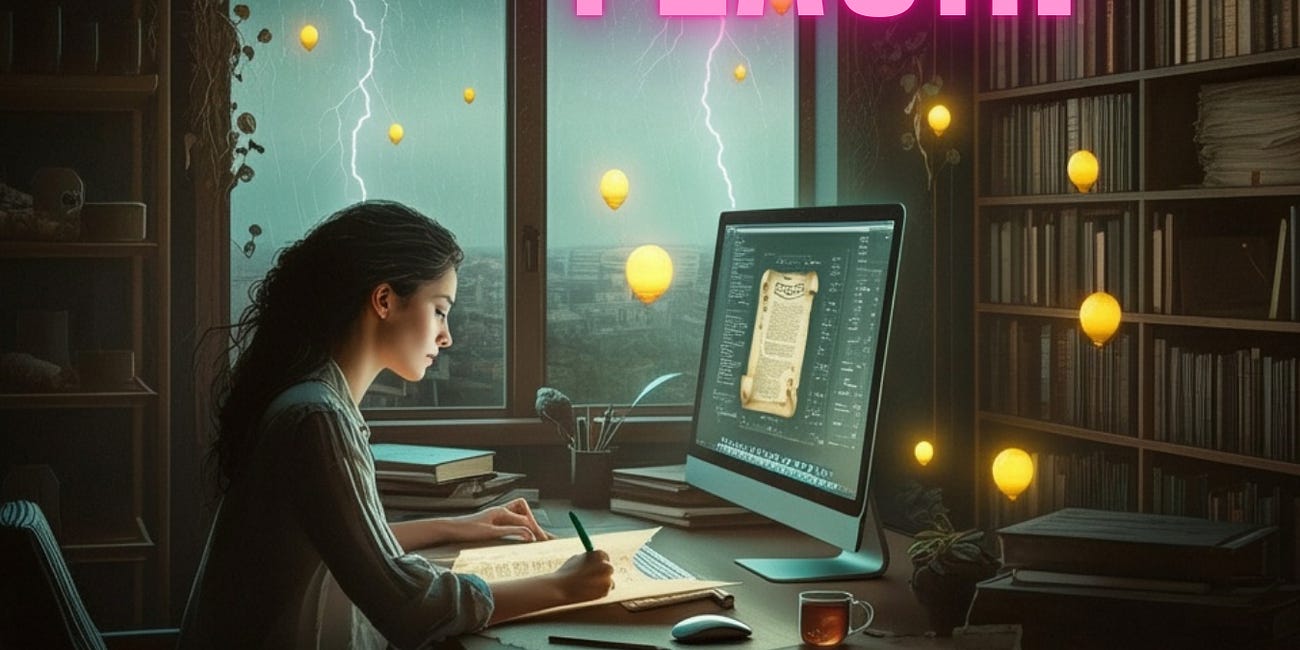I love saying that I can write in any genre, but Speculative Non-Fiction is the one genre that’s been the hardest for me to wrangle. I first encountered the genre when the oh-so-keen writer Debra Marquart read a short story she’d written from her 2006 memoir, The Horizontal World, where she put herself and her father into one of those Midwest farmer’s daughter jokes. That was the narrative frame for her story. It was so delightful, I found myself at the edge of my padded metal chair, leaning toward her probably cocking my head left to right like a dog trying to understand what magical kind of treat this was.
She called it speculative non-fiction, and I could not for the life of me understand how it wasn’t fiction, because…it never happened. I could have asked her, since Deb Marquart is the Obi Wan Kenobi of this genre, and she would have explained it. But I didn’t becasue I was scared to let everyone know what a beginner I was. For shame, because after the reading was over, I realized quite a few other people didn’t quite get it either—people who I believed to be smarter than me, people who published books, people who go to their school reunions, and have nannies, and always wear matching socks. You know, those Type A people who were elected to set the standards for the rest of us. Yes, even a few of them didn’t get it.
It wasn’t until I started practicing that I understood how it worked—I’m not one of those who can intellectually understand something without actually doing it. This is how I’d define speculative non-fiction: the characters, motivations, and connections are all real, you know, non-ficton, but the pathways are speculative. It’s like that movie Sliding Doors with Gwyneth Paltrow or alternate histories like The Man in the High Castle by Philip K. Dick (what’s the K for, I wonder? Maybe it’s for Kensington, like the castle. He probably developed a love for castles because of his name and obsessed about the power structures born from them and the Third Reich, and then boom, The Man in the High Castle was imagined…but I’m speculating ;-)
Writing history can be dry and and memoir can be overwhelmingly emotional— using speculative non-fiction strategies can help tackle some big issues, the real issues, without coming at it head on. My friend Paul calls this strategy “writing from an oblique angle.” An angle that is slanted but not perpendicular or parallel or opposite. My vernacular is more colloquial to Maine, I call it, coming right around sideways. Let me explain.
When I was in high school, a friend named Matt did not have reverse or first gear in his VW Golf. He had all of these strategies for parking and getting his car going if the legion of friends could not be summoned—no cell phones or Snapchat back then. One such strategy was to come-right-around-sideways into a downhill parking spot which was basically reserved for him and his shitbox. This was an oft repeated maneuver that involved an uphill U-turn, an emergency break, and a fair amount of noise including squealing tires and victory cries.
Speculative non-fiction is a terrifically useful way to help write about charged life events that are hard to recount directly. It’s another way of telling the truth, and even amplifying it.
Here are a few prompts to get your mind wrapped around speculative non-fiction and to explore history or your own memories.
Come Right Around Sideways: Write about being a high schooler and how you had a real piece of shit car that didn’t have reverse or first gear. How did this impact your high school experience? Adam Sandler’s Ode to my Car can get you in the mood.
You, Your Mother, and Your Father Walk into a Bar: In the vein of Debra Marquart, start with the structure of the classic A priest, a rabbi, and a monk walk into a bar joke (or any other) but replace them with your immediate family members (dead or alive), see what happens.
Lost Futures: Write about a significant decision in your life, but explore an alternate reality where you made the opposite choice. How does this other version of your life unfold, and how does it affect the person you are now?
End of Death: Speculate on the societal and psychological impact of humanity preserving human consciousness with Artificial Intelligence. How would this affect religion, family structures, and individual purpose? Explore the consequences of this kind of immortality.
Time-Shifted Memories: Write a personal memory as though it took place 100 years in the future. How do the cultural, technological, and environmental changes affect the experience? Reflect on how those future shifts reframe your understanding of the event.
A Parallel Self: One day, you encounter a version of yourself from a parallel universe. Write about your conversation and the revelations you share. How does this encounter challenge or reaffirm your sense of identity or perception of an event.
The Last Human Story: Imagine a world where you are the last person who remembers what it was like to be human. Write about your real memories of human connection, set in a distant future where those experiences no longer exist. How do you carry the weight of remembering?
Ciao for now,
n
Don’t forget to subscribe and drop in to one of our Thursday evening Flash! writing classes. Drop-ins are welcome.
The Practice of Writing Flash Writing classes happening on Thursdays









Yet again, I am thinking that the borders between fiction and nonfiction are much more porous than we want to admit. All these new names for subgenres of nonfiction seem to me like they are carving notches along a continuum.